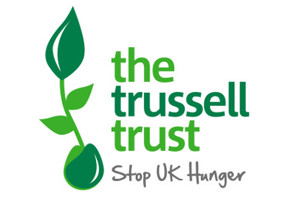It is essential that the charity sector continues to focus on inclusion during the Covid-19 crisis because disadvantaged communities will be disproportionately affected, the executive director of the Equality Trust said yesterday.
Wanda Wyporska was speaking at a webinar led by ACEVO about an equitable and inclusive response to Covid-19.
She spoke about the effects that the virus was having on small charities and those working on a grassroots level, saying: “They are going into crisis.”
She added that those charities are doing the job of the state, and a lot of the beneficiaries are from marginalised communities.
“To start saying we are not going to focus on inclusion is dangerous,” she said. The impact of Covid-19 will disproportionately affect already disadvantaged communities, and therefore it is not a factor that can be overlooked, she explained.
Vicky Browning, chief executive of ACEVO, said that the sector must make sure that it ensures an equitable and inclusive response to the Covid-19 crisis.
She said that the outbreak of Covid-19 “has transformed charities' plans and priorities”, but that moving with speed does “not negate the necessity of being inclusive”.
“Although we will all be impacted by Covid-19, we will not all be impacted equally,” she explained.
Camille St-Omer Donaldson, a CharitySoWhite organiser, said she was concerned that racial justice work might become deprioritised during the pandemic when actually it is “at the heart of having a successful response”.
She said that the sector should not accept actions which sideline people of colour, in the name of moving quickly during the pandemic.
Sector collaboration and innovation
Speakers emphasised the importance of collaboration during this crisis, and also the opportunity for innovation.
Wyporska said that charities must be in open dialogue with beneficiaries, in order to come up with solutions. She said that although there is a need for swift decision-making, decisions should not be top-down.
Given this, she said that it is essential for the sector to come together and not work with a silo mentality.
Wyporska noted that she has seen infrastructure bodies “step up” in collaboratively asking the government to include charities in its business support plans. She said that the role of infrastructure bodies is to listen to members and spreading their views.
This was echoed by Browning, who said ACEVO has been making sure it is including as many voices as possible in decision-making.
We are seeing “more agile and collaborative leadership” as the pandemic is challenging leaders and forcing them to make changes that are long overdue, Wyporska said.
Operations
The speakers also spoke about the importance of inclusion in charity operations. For example, in changing to working from home, employers must also still look to have an inclusive workforce and well-served beneficiaries.
Human rights activist Becca Bunce said that just because charities move some of their processes online, it should not be assumed that this is always done well.
In addition to this, she noted that there are gaps in digital infrastructure and that employees do not have equal access to technology.
Given these factors, Bunce said that there is still power at play, but the dynamic of it is changing throughout the pandemic.
She added that accommodations such as being able to work more digitally are changes that people have been asking to have for a long period of time and that many people have been asking employers to see online space as legitimate for years.
Bunce said that there is a lot to be learned from disabled people because working from home is a skillset in itself.
She concluded that inclusion should not just be an add on, “it is part of our mission as a sector”.
Funders
Mubin Haq, chief executive of the Standard Life Foundation, praised the speed of the statement from funders stating that they would be flexible during the pandemic. He said that he had not seen that kind of coordination in all his time working in the sector.
Haq said that there are three key areas that will allow funders to put inclusion at the forefront of tackling the Covid-19 crisis.
The first has to do with grants programmes and the flexibility that funders now need to adopt. He noted that different funders are able to do different things, but said that where there are significant grants being given, one option might be to move these to unrestricted grants.
Haq also said that funders should think about the reporting requirements they have, and said they should not be creating onerous tasks.
He also suggested that funders often “sit on the sidelines”, but actually this is a time which calls for funders to advocate.
Secondly, Haq said funders must consider operations. This means adapting to working from home and considering where digital innovation can take place.
Thirdly, Haq said funders must consider their investments. He noted that most funders are invested in some way in stock markets, and cannot necessarily see how far the virus will impact the future. He therefore noted that for funders with permanent endowments, rather than expendable ones, it will be difficult to be totally flexible.
But, if funders have expendable endowments, they should think about how to use them and how flexible they are able to be.
Haq concluded that funders need to realise their limitations, as ultimately the government has the major resources, hence the need for advocacy on the part of funders.
Related articles












